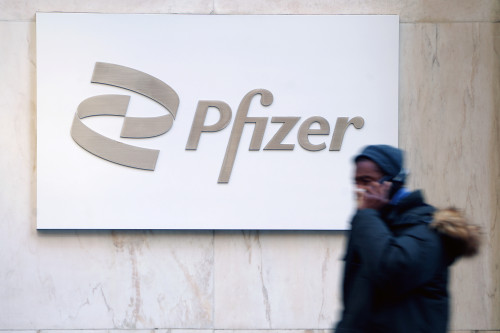By Nate Raymond
(Reuters) -A U.S. appeals court on Friday revived a lawsuit by a conservative group opposed to diversity initiatives in medicine that challenged a Pfizer fellowship program designed to boost the pipeline of Black, Latino and Native American people in leadership positions at the drugmaker.
At the urging of the group Do No Harm, a 2-1 panel of the New York-based 2nd U.S. Circuit Court of Appeals revisted a decision it issued last year holding the organization lacked legal standing to challenge the drugmaker’s program in court.
That earlier decision had raised the bar for groups like Do No Harm to pursue similar cases on behalf of their membership by finding that they needed to identify members who were affected by the alleged discrimination they were suing over by name.
Do No Harm and other conservative advocacy groups had urged the 2nd Circuit to reconsider that holding, which they said would chill civil rights litigation by exposing individuals to harassment and retaliation if their identities were revealed.
The 2nd Circuit panel that issued that decision agreed to reconsider it, and on Friday concluded a trial court judge applied too strict of a standard in assessing whether Do No Harm had standing and should reconsider the issue.
Stanley Goldfarb, Do No Harm’s chair, in a statement said it was pleased the court “reversed course and correctly recognized our right to protect our members in the district court.”
Pfizer in a statement said Do No Harm’s claims were without merit and that it was “proud of its commitment to diversity, equity, and inclusion.”
Virginia-based Do No Harm, which is a non-profit that counts doctors, medical students and others as members and aims “to protect healthcare from radical, divisive and discriminatory ideologies,” had no immediate comment.
Do No Harm sued Pfizer in 2022 over the company’s Breakthrough Fellowship Program, which aimed to increase the pipeline of Black, Latino and Native American leaders in the company, arguing it discriminated against white and Asian-American applicants.
The lawsuit was filed a month before the U.S. Supreme Court heard arguments in cases in which its conservative majority would later declare unlawful race-conscious college admissions policies used by Harvard University and the University of North Carolina.
That June 2023 decision, while focused on college admissions, has prompted several lawsuits challenging diversity programs at companies, some of which have since altered their policies.
Walmart and McDonald’s are among the companies that have recently backed away from diversity practices following pressure from conservative activists.
Do No Harm challenged Pfizer’s program on behalf of two anonymous white or Asian-American members the group claimed were not able to apply to the fellowship, alleging it violated federal anti-discrimination laws.
The program’s criteria has since been changed to allow anyone to allow apply.
(Reporting by Nate Raymond in Boston, Editing by Alexia Garamfalvi and Deepa Babington)


